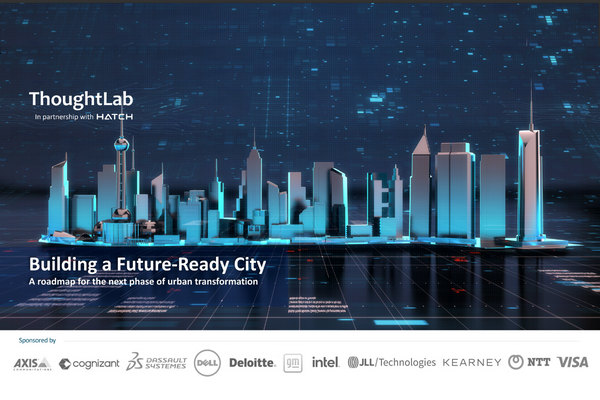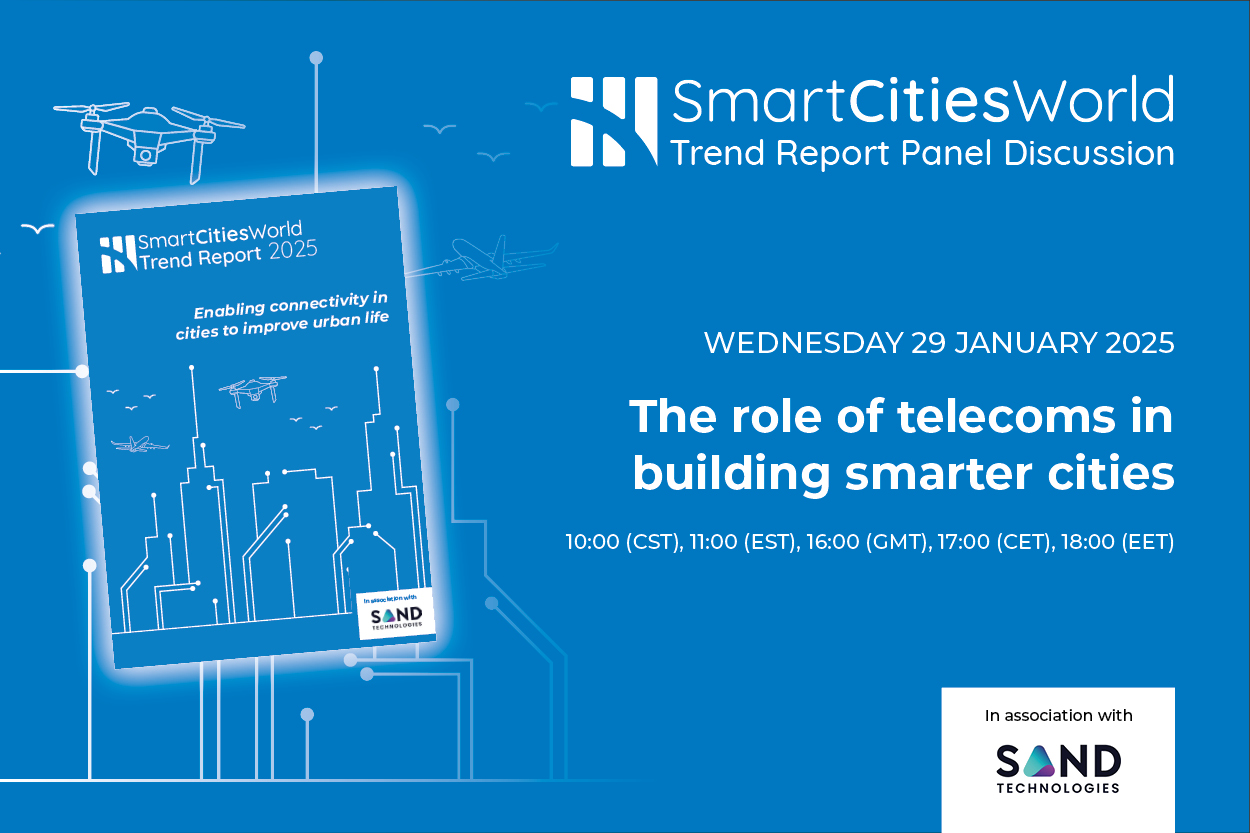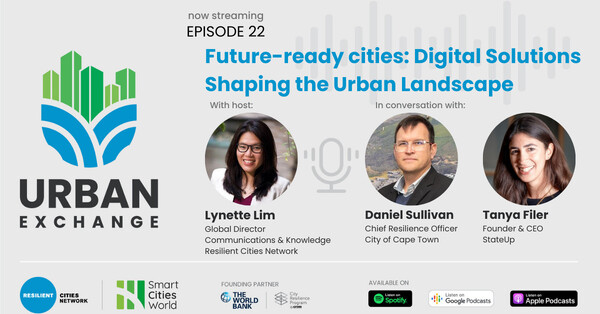Special Reports
SusHi Tech Tokyo 2024: experience ‘Tokyo 2050’ todaySponsored by The SusHi Tech Tokyo 2024 Showcase Program Executive Committee
e-Book: Building a Future Ready City
New research finds escalating urban challenges and the need for cities to become future-ready. The Global study of 200 cities and 2,000 citizens shows how urban leaders are adjusting their priorities and adapting to changing citizen expectations.

Social, economic, and environmental disruptions, heightened by the COVID-19 pandemic, are radically altering the expectations and behaviors of citizens, requiring urban leaders around the world to develop action plans to become future-ready.
ThoughtLab, a leading global research firm, has joined forces with a broad coalition of business, government, and academic leaders to provide city leaders with a blueprint for future success. Titled Building a Future-Ready City, the newly released study findings show what it means to be future-ready, and what cities need to do to get there. The study was sponsored by Axis Communications, Cognizant, Dassault Systèmes, Dell, Deloitte, GM, Intel, JLL Technologies, Kearney, NTT, and Visa.
To analyze how cities are future-proofing their urban environments, ThoughtLab, together with Hatch Urban Solutions, a global engineering company, conducted a worldwide benchmarking study of 200 cities—representing 5% of the world population. In addition, ThoughtLab and Hatch surveyed 2,000 citizens in 20 worldwide cities to assess the alignment between city strategies and citizen expectations. To gain qualitative insights, ThoughtLab interviewed city leaders about their plans and held meetings with a global cadre of urban experts
.
“Cities are facing greater upheaval today than at any time since we began conducting urban research. Our goal is to provide cities with an evidence-based roadmap to address rapidly changing citizen expectations and behaviors, along with in-depth benchmarking analysis to enable them to measure where they are in future-readiness against others,” said Lou Celi, the CEO of ThoughtLab and the director of the research program.
Of the 200 cities participating in the study, the top 10 most future-ready cities are Tokyo, Hangzhou, Helsinki, Tallin, Taipei, Durham, Aberdeen, Sapporo, Boulder, and Madrid.
The top five cities by region are:
- North America: Boulder, Salt Lake City, Oklahoma City, Santa Clara, and Berkeley
- Latin America: Belo Horizonte, Merida, Aracaju, Pachuca, and Bucaramanga
- Europe: Helsinki, Tallin, Durham, Aberdeen, and Madrid
- Middle East & Africa: Dubai, Tel Aviv, Kigali, Manama, and Dammam
- Asia Pacific: Tokyo, Hangzhou, Taipei, Sapporo, and Christchurch
The research also shows general alignment between city leaders and citizens, but also some major gaps. Both see climate change as the greatest challenge facing cities and agree on the need for major urban transformation. They concur that affordable housing, homelessness, and public health should be high on urban agendas. But citizens see inadequate infrastructure, income inequality, and, particularly, low trust in government, as bigger problems than cities care to admit. And citizens are less confident about their city’s ability to take the action needed to become future-ready.
This report goes on to look at:
- How cities can seize their futures
- Future investment plans
- What the future looks like
You can also view case studies from
- Almaty
- Austin
- Barcelona
- Bucaramanga
- Cary
- Chengdu
- Chicago
- Dublin
- Kyiv
- New York
- Orlando
- Peachtree Corners
- Perth
- Seoul
- Toyota City
To Download this document, click on the link above the first image
SmartCitiesWorld are delighted to be a media partner for this in-depth report and it’s ongoing studies.









